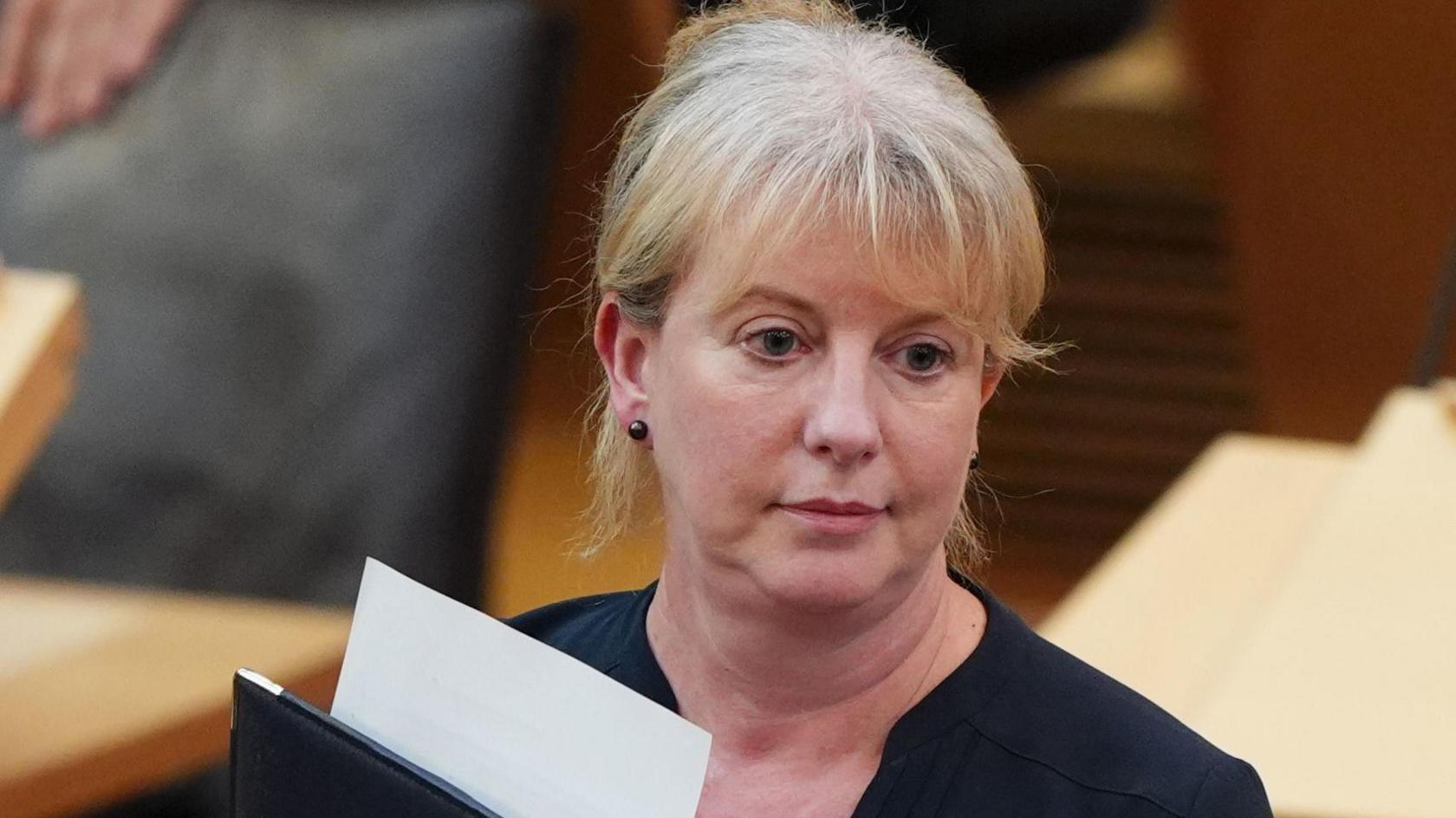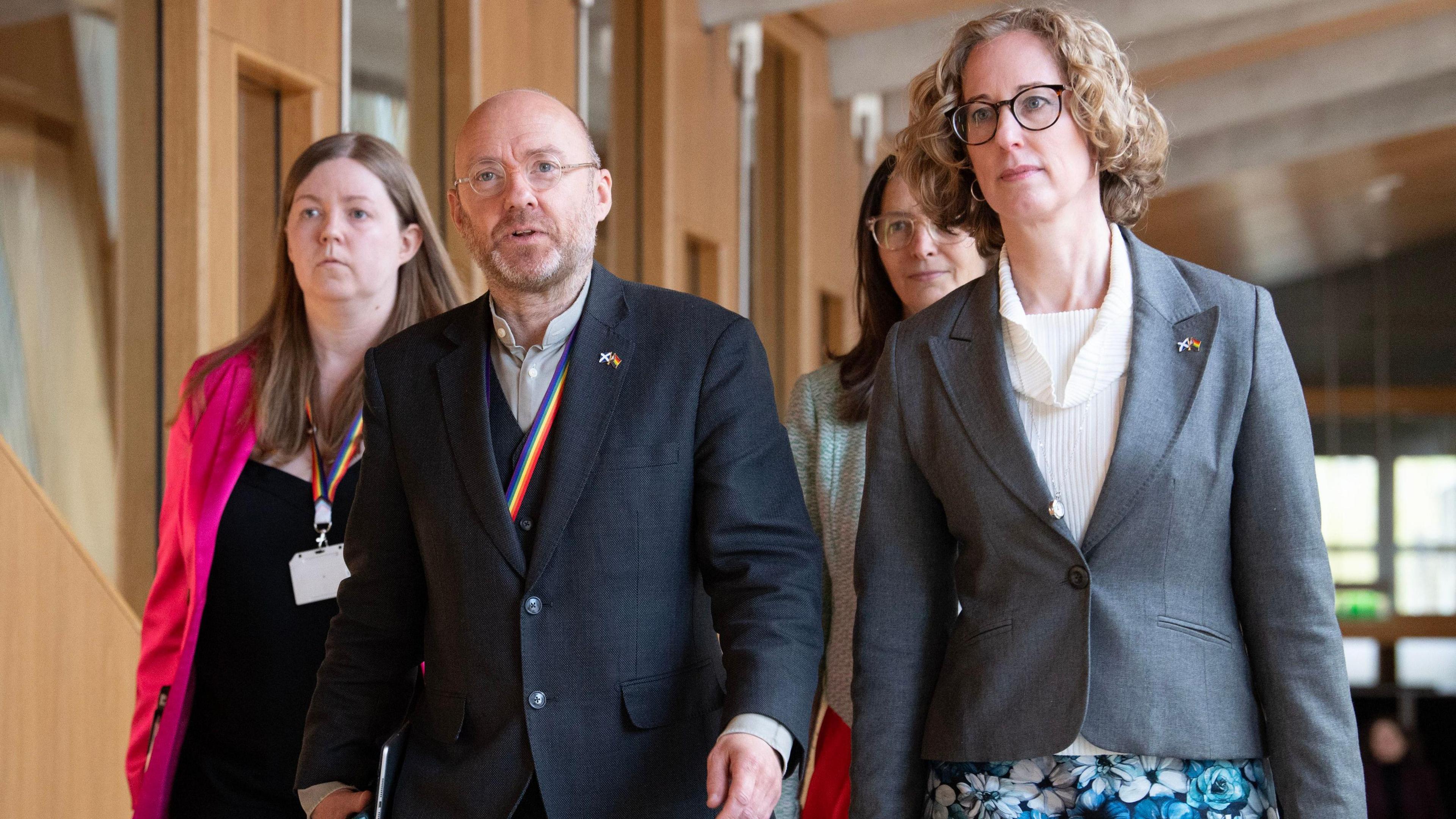Swinney vows his cabinet will listen not dictate
Swinney committed to understand 'barriers to progress'
- Published
Collaboration and consensus.
That, the first minister says, is his approach to running the country.
John Swinney was speaking to representatives from both public and private sector organisations at the Royal Society of Edinburgh.
In the keynote address to mark St Andrew's Day, he stressed he was "not here to dictate from on high to those on the frontline".
When is the Scottish Budget and what will be in it?
- Published4 December 2024
Spending cuts set the tone for tough financial choices to come
- Published3 September 2024
SNP's power-sharing deal with Greens collapses
- Published25 April 2024
Instead he said the problems facing Scots needed to be understood and solved from the bottom up.
And he added that he is "prepared to roll his sleeves up every single day to properly understand barriers and find solutions".
The speech was an attempt by the first minister to style his government as one that is prepared to listen, willing to work with others, and admit - to use a phrase often favoured by Holyrood's politicians - that it doesn't have a monopoly on wisdom.
The reality is of course that without a majority in the Scottish Parliament, John Swinney has no real choice but to take this approach.
That has already been evidenced by the government's handling of its plans for a National Care Service.
The project lost support from those who would be tasked with delivering it, and opposition parties are against it.
That meant ministers putting an indefinite pause on the policy.

Finance Secretary Shona Robison will next week detail the government's tax and spending plans for the next financial year
And with his Finance Secretary Shona Robison due to set out the government's tax and spending plans for 2025/26 next week, this speech was an opportunity to emphasise the government's need for political parties to work together.
It has to strike a deal with at least one of its political opponents to pass its budget.
As Mr Swinney puts it, they cannot be "mere bystanders" in the process, adding that without collaboration, there would be no budget bill.
It's a position Holyrood's opposition parties understand perfectly well.
For them, minority government means an opportunity to exert influence. To persuade ministers to commit cash to one of their priorities in exchange for their votes, or to make changes to government legislation.
The dynamic has worked in the past - perhaps most successfully in the SNP's 2007 government.
But things have changed dramatically since then.

Scottish Green Party co-leaders Lorna Slater and Patrick Harvie at the Scottish Parliament in Holyrood, Edinburgh, after First Minister Humza Yousaf terminated the Bute House agreement with immediate effect.
The domination of the constitutional row divided Holyrood's parties, and more recently, the end of the SNP's power sharing deal with the Greens left a bitter taste.
Then there was the government's approach during the years it held a majority of seats.
Some both within and outside of parliament would argue there wasn't much evidence of collaboration back then.
Indeed, reacting to Mr Swinney's speech, Scottish Lib Dem MSP Willie Rennie accused ministers of "castigating opponents and shifting blame" over the past 17 years.
They would have to go some, he said, "to convince us they are now imbued with consensus and compromise".
Rennie added that "the SNP often reach out for support when they are in trouble and that's certainly true now".
Scottish Conservative leader Russell Findlay suggested ministers were already "working up another grubby deal with the Greens that hammers Scots with higher bills".
Despite the criticism, it seems likely a deal on the Budget will be struck - probably with one of Holyrood's smaller parties.
The consequences of failing to reach an agreement could be serious when it comes to ensuring public services are funded.
Beyond that, the challenge for the first minister will be trying to pass the rest of his legislative agenda and maintain his collaborative outlook - a feat that will get harder as the 2026 Scottish elections get closer.